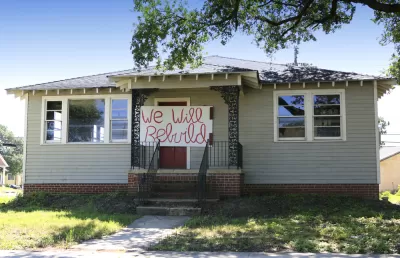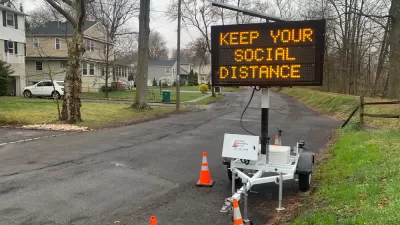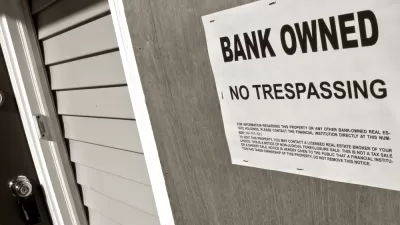Tulane researchers received major funding support from the National Institutes of Health to study the effects of blight remediation on youth and family violence.

A new Tulane University research project will "study whether maintaining vacant lots and fixing up blighted properties in high-crime areas reduces incidents of youth and family violence," according to an article by Keith Brannon.
Researchers from Tulane’s schools of Public Health and Tropical Medicine and Architecture received $2.3 million in funding from the National Institutes of Health to study the question, reports Brannon.
The researchers will work with the city of New Orleans to clean up 300 blighted properties around the city.
"They will split the properties into two randomized intervention groups — half featuring overgrown vacant lots that are cleared and maintained and another featuring both remediated buildings and lots," explains Brannon. "Researchers will compare crime rates in the intervention groups with those in matched, untouched control areas to see whether mending disordered spaces can trigger healing psychosocial effects within a neighborhood."
Principal investigator Katherine Theall is quoted in the article saying this study will be the first to measure the connection between blight remediation and youth and family violence.
FULL STORY: Tulane awarded $2.3 million to study whether clearing blight stems teen violence in New Orleans

Maui's Vacation Rental Debate Turns Ugly
Verbal attacks, misinformation campaigns and fistfights plague a high-stakes debate to convert thousands of vacation rentals into long-term housing.

Planetizen Federal Action Tracker
A weekly monitor of how Trump’s orders and actions are impacting planners and planning in America.

San Francisco Suspends Traffic Calming Amidst Record Deaths
Citing “a challenging fiscal landscape,” the city will cease the program on the heels of 42 traffic deaths, including 24 pedestrians.

Defunct Pittsburgh Power Plant to Become Residential Tower
A decommissioned steam heat plant will be redeveloped into almost 100 affordable housing units.

Trump Prompts Restructuring of Transportation Research Board in “Unprecedented Overreach”
The TRB has eliminated more than half of its committees including those focused on climate, equity, and cities.

Amtrak Rolls Out New Orleans to Alabama “Mardi Gras” Train
The new service will operate morning and evening departures between Mobile and New Orleans.
Urban Design for Planners 1: Software Tools
This six-course series explores essential urban design concepts using open source software and equips planners with the tools they need to participate fully in the urban design process.
Planning for Universal Design
Learn the tools for implementing Universal Design in planning regulations.
Heyer Gruel & Associates PA
JM Goldson LLC
Custer County Colorado
City of Camden Redevelopment Agency
City of Astoria
Transportation Research & Education Center (TREC) at Portland State University
Jefferson Parish Government
Camden Redevelopment Agency
City of Claremont




























